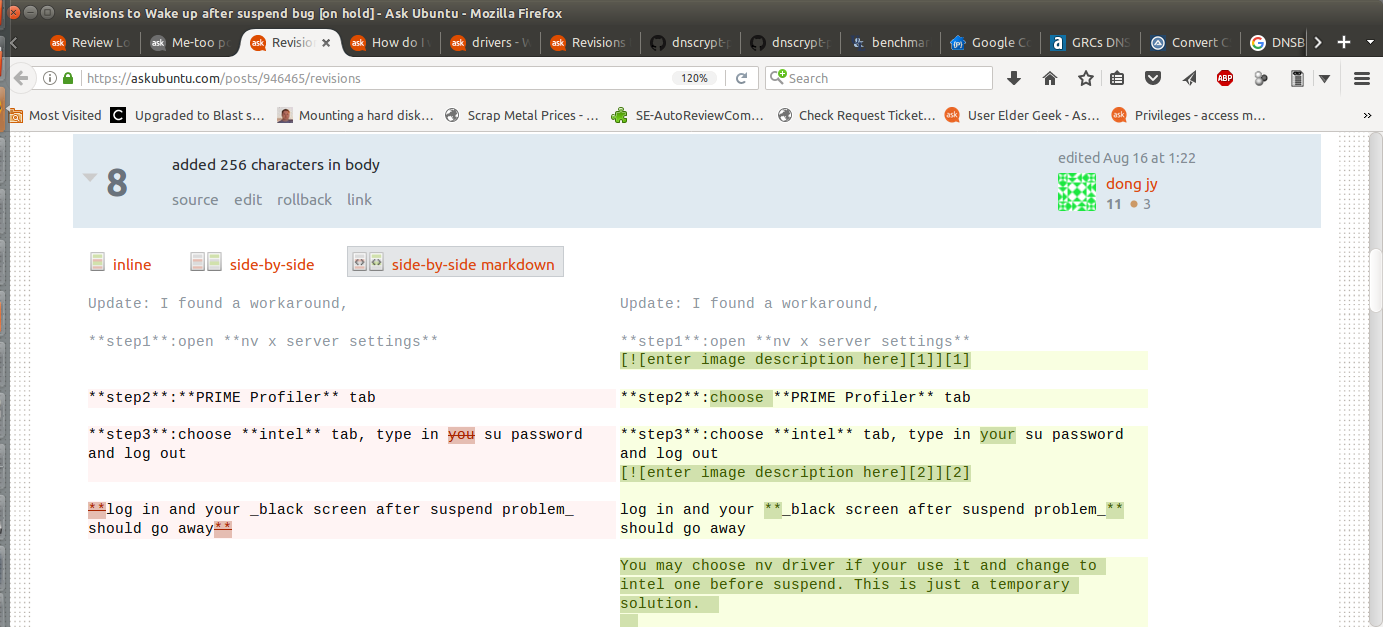Where do we draw the line between "I'm having the same problem, too" posts and partial answers?
This answer and its comments are what have motivated me to ask this. But I'm hoping for a general answer to this question, too, if it's reasonable to have one.
As Zanna pointed out, our official help page How do I write a good answer? says this:
Have the same problem?
Still no answer to the question, and you have the same problem? Help us find a solution by researching the problem, then contribute the results of your research and anything additional you’ve tried as a partial answer. That way, even if we can’t figure it out, the next person has more to go on. You can also vote up the question or set a bounty on it so the question gets more attention.
(the bold emphasis is mine)
But we frequently delete posts that may at least have been intended to conform to this rule. There seems to have been little awareness (including by me) that this is considered a legitimate use of answers, perhaps because it's rather vague. At what point does a post confirming a problem come to provide enough progress toward a solution that it crosses over into being a partial answer? Or am I asking the wrong question? Is the amount of information provided not the important question after all? Is the detail about what was tried important, even if it hardly approaches a solution? Do we just disagree with the help page and want to get it changed?
For me, the central issue seems to come down to this:
- Sometimes it's easy to tell that an answer is an "I'm having this problem, too" comment and serves merely to confirm or clarify something small about the problem and should be removed or converted to a comment.
- Sometimes it's easy to tell that an answer is a partial answer that doesn't solve every aspect of the problem, but still provides a usable solution or workaround for part of the problem or an explanation of the problem.
- And then there is a huge expanse in between, where it's not clearly one or the other.
I'm not sure what my position on this issue is, because:
- It seems to me that, right now, we are ignoring an official rule in the help entirely, and any post that doesn't come out, guns a-blazing, screaming "I'm an answer! I'm an answer! I'm an answer and this is the solution!" tends to get flagged and deleted in review. This actually goes beyond answers that don't provide a solution--I often see complete, definitive, fully tested answers flagged for removal because they started with "I have this problem too" or contained a couple of question marks.
- On the other hand, there seem like good reasons not to allow "I have this problem, and by doing A, B, C, D, ..., I have confirmed it's not W, X, Y, Z, ..." posts to be answers. It places the burden of knowing it's actually the same problem, as well as of judging if the question is written in a way that will ever attract enough attention to solve the problem, on the answerer, who is often new to the site. If they posted a separate question, these problems would be avoided... at the cost of fragmenting what might be the same problem into multiple questions.
Finally, I wonder: Is this part of the help page just a holdover from back when we would close questions as duplicates of other unanswered questions? Should it be replaced with advice to post a new question while linking back to the original for context?
Currently, we do not dupe to unanswered questions. The system does not allow it anymore, except for questions asked by the same user--since users sometimes make multiple questions about the same problem when only one is needed. Questions are considered "unanswered" when they have no answers with a positive score or the OP's accept, and the system no longer allows other authors' questions to be duped to them. This change was met with much criticism at the time (including by me) but seems to have worked out very well.
Thus:
- Before, a new question with substantially different information and troubleshooting steps that appeared to about the same problem could easily be closed as a duplicate of an older unanswered question without that information. By posting their findings as answers, people could avoid this.
- Now, such duping is discouraged and largely prevented by the system. Furthermore, suppose someone posted their findings ("it's not W, X, Y, Z, ...") as an answer, and that answer got upvoted. Then other questions could be closed as a duplicate of a question where no solution has been provided.
How do we want to interpret our policy around these issues? Or, alternatively, what policy do we want to have?

